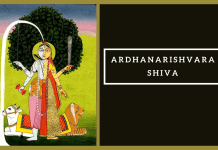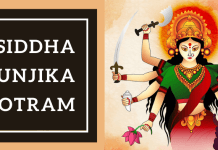Sawan Shivratri is a revered Hindu festival that holds immense significance for devotees of Lord Shiva. Celebrated during the auspicious month of Sawan, this festival marks a time of deep devotion, spiritual introspection, and seeking blessings from the mighty Lord Shiva. The entire month of Sawan is dedicated to worshipping Lord Shiva, but Shivratri stands out as a pinnacle of reverence and celebration.
Significance of Sawan Shivratri:
Sawan Shivratri is celebrated with great fervor and devotion by Shiva devotees across India. The festival holds multifaceted significance, symbolizing the divine union of Lord Shiva and his devotees. It is believed that by pleasing Lord Shiva through prayers and rituals, devotees can lead a life filled with good health, happiness, and prosperity. Unmarried girls observe fasts during the Sawan month, hoping to find a life partner as virtuous and benevolent as Lord Shiva himself.
Rituals of Sawan Shivratri:
Sawan Shivratri is a time when devotees engage in various rituals to express their unwavering devotion to Lord Shiva and seek his divine blessings. These rituals include:
- Morning Purification: Devotees begin the day by rising early before sunrise and purifying themselves with a holy bath. This act of cleansing symbolizes the purity of mind and body required for connecting with the divine.
- Temple Visits and Jalabhishek: Devotees visit Lord Shiva temples, the abode of the divine, to offer their prayers and perform Jalabhishek. During Jalabhishek, water is lovingly poured on the Shiva Lingam as a gesture of purification, devotion, and gratitude.
- Rudrabhishekam: After Jalabhishek, devotees perform Rudrabhishekam to the Shivalingam. This ritual involves bathing the Shiva Lingam with Panchamrit, a sacred mixture of milk, curd, sugar, honey, and ghee, along with Ganga Jal. Chanting the sacred mantra “Om Namah Shivaya” during this ritual invokes the divine presence of Lord Shiva.
- Offerings and Adornments: Devotees express their devotion by offering white and red flowers, Bel Patra (leaves of the Bel tree), Bhaang (a preparation made from cannabis), and Dhatura (a sacred plant) to the Shiva Lingam. Some devotees even perform abhishekam using sugarcane juice. White sweets are offered to Lord Shiva and Goddess Parvati, signifying devotion and gratitude.
- Chanting and Recitations: Devotees engage in the chanting of sacred mantras and recite prayers dedicated to Lord Shiva. The Maha Mrityunjay Mantra, known for its immense power, is chanted as a form of protection and spiritual upliftment. Devotees also recite Shiva Chalisa, Shiva Rudrashtakam, and sing Lord Shiva Aarti to express their love and devotion.
- Shringaar for Goddess Parvati: Married and unmarried women adorn the idol or image of Goddess Parvati, the divine consort of Lord Shiva, with shringaar (decorative items). This act is believed to bring blessings for a blissful married life and overall well-being.
- Devotional Offerings: Devotees express their devotion and gratitude by offering clothes to the Shiva Parivar, the divine family consisting of Lord Shiva, Goddess Parvati, and other deities associated with Lord Shiva.
Sawan Shivratri is a time of spiritual introspection, devotion, and seeking divine blessings. By engaging in these rituals, devotees strengthen their bond with Lord Shiva and experience a profound connection with the divine. It is a festival that reminds individuals of the values of purity, faith, and righteousness, inspiring them to lead a life aligned with the teachings of Lord Shiva.


























































